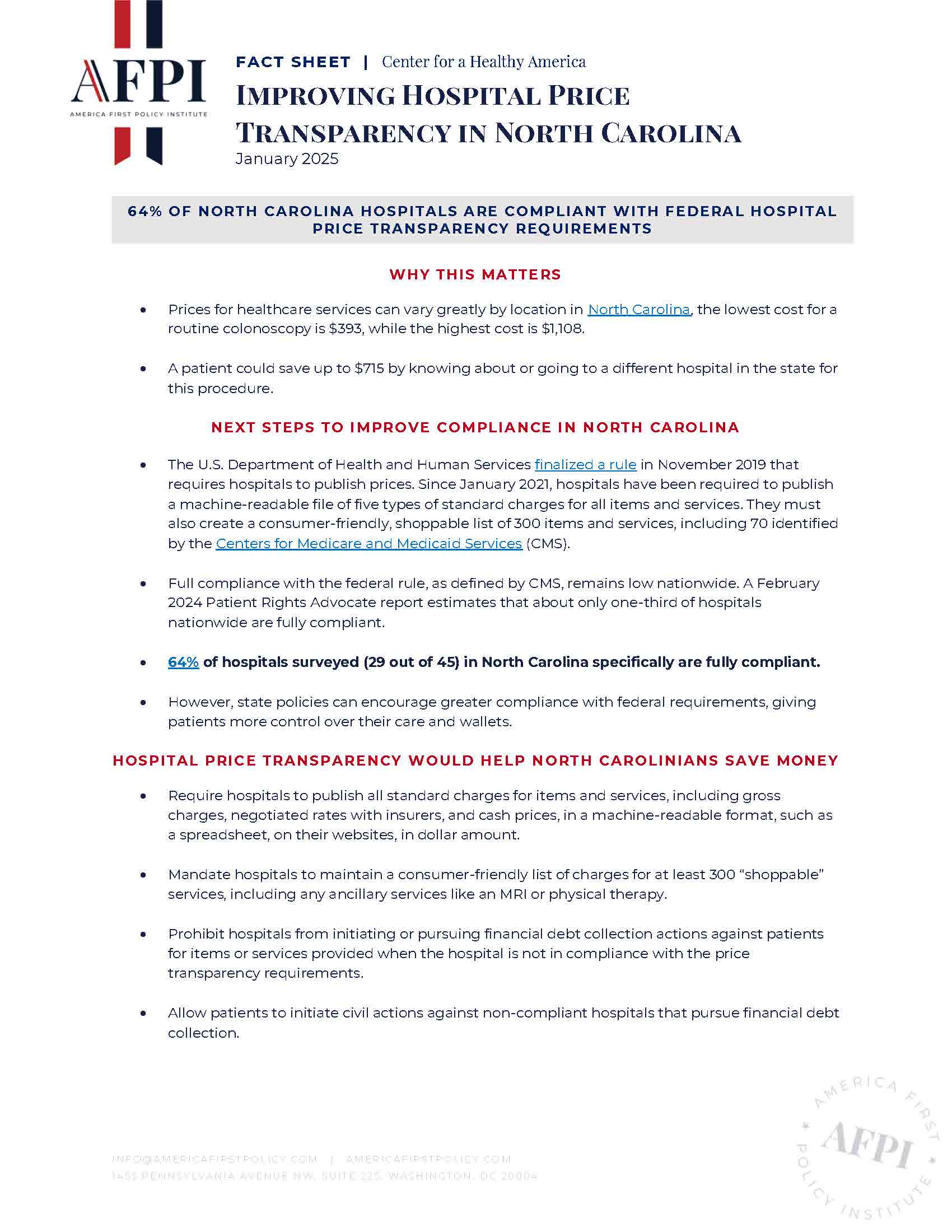January 23, 2025
Improving Hospital Price Transparency in North Carolina
64% OF NORTH CAROLINA HOSPITALS ARE COMPLIANT WITH FEDERAL HOSPITAL PRICE TRANSPARENCY REQUIREMENTS
WHY THIS MATTERS
- Prices for healthcare services can vary greatly by location in North Carolina, the lowest cost for a routine colonoscopy is $393, while the highest cost is $1,108.
- A patient could save up to $715 by knowing about or going to a different hospital in the state for this procedure.
NEXT STEPS TO IMPROVE COMPLIANCE IN North CAROLINA
- The U.S. Department of Health and Human Services finalized a rule in November 2019 that requires hospitals to publish prices. Since January 2021, hospitals have been required to publish a machine-readable file of five types of standard charges for all items and services. They must also create a consumer-friendly, shoppable list of 300 items and services, including 70 identified by the Centers for Medicare and Medicaid Services (CMS).
- Full compliance with the federal rule, as defined by CMS, remains low nationwide. A February 2024 Patient Rights Advocate report estimates that about only one-third of hospitals nationwide are fully compliant.
- 64% of hospitals surveyed (29 out of 45) in North Carolina specifically are fully compliant.
- However, state policies can encourage greater compliance with federal requirements, giving patients more control over their care and wallets.
HOSPITAL PRICE TRANSPARENCY WOULD HELP North Carolinians SAVE MONEY
- Require hospitals to publish all standard charges for items and services, including gross charges, negotiated rates with insurers, and cash prices, in a machine-readable format, such as a spreadsheet, on their websites, in dollar amount.
- Mandate hospitals to maintain a consumer-friendly list of charges for at least 300 “shoppable” services, including any ancillary services like an MRI or physical therapy.
- Prohibit hospitals from initiating or pursuing financial debt collection actions against patients for items or services provided when the hospital is not in compliance with the price transparency requirements.
- Allow patients to initiate civil actions against non-compliant hospitals that pursue financial debt collection.
